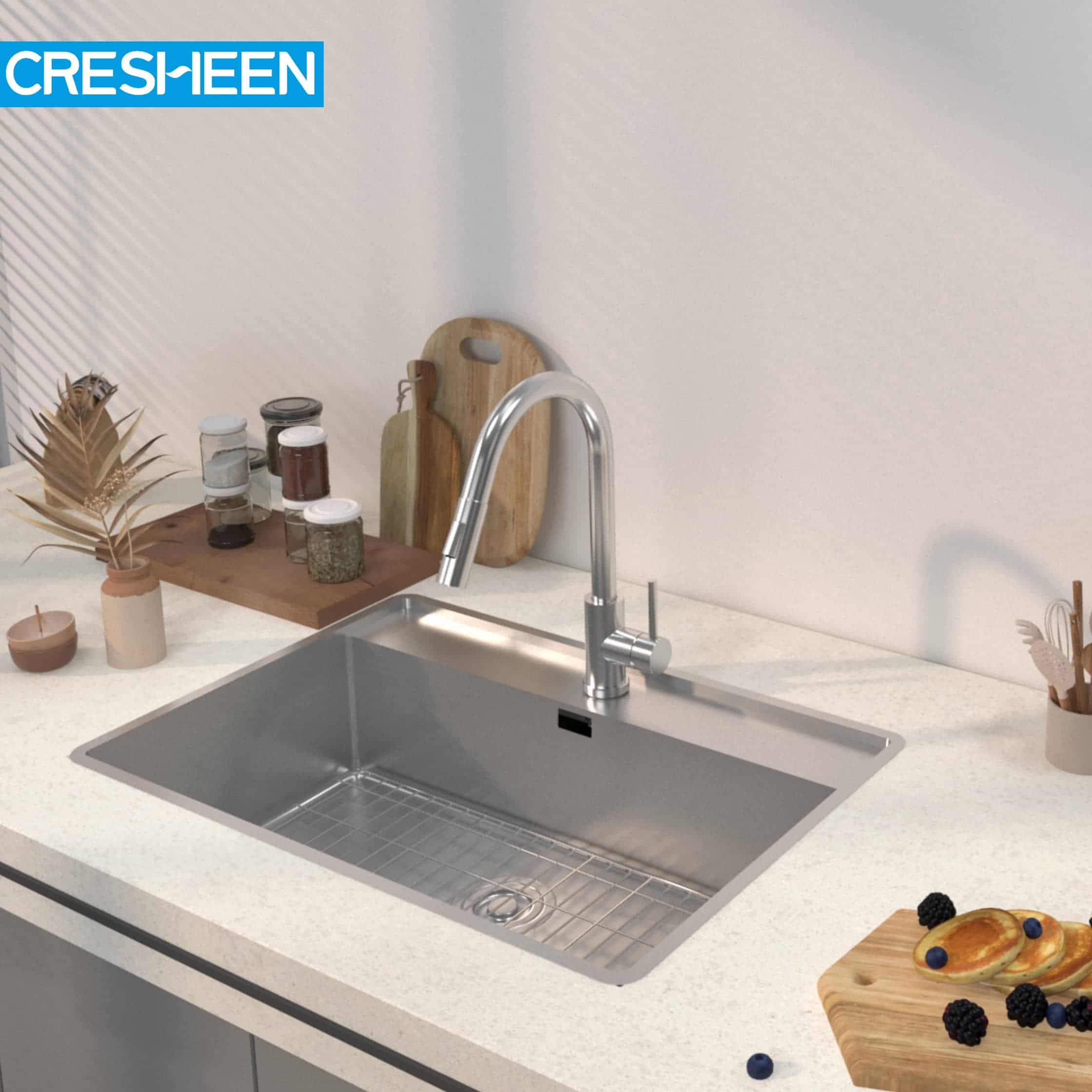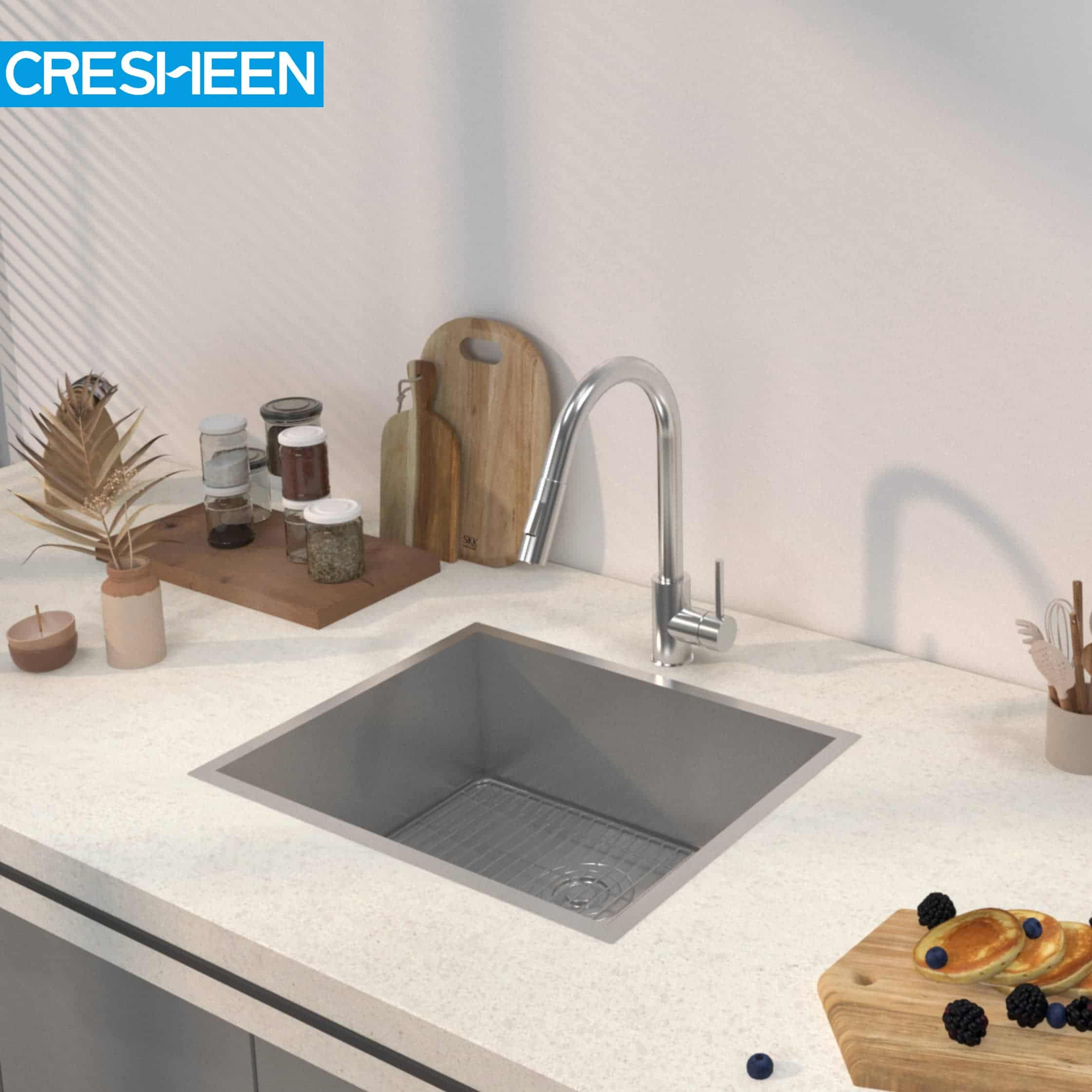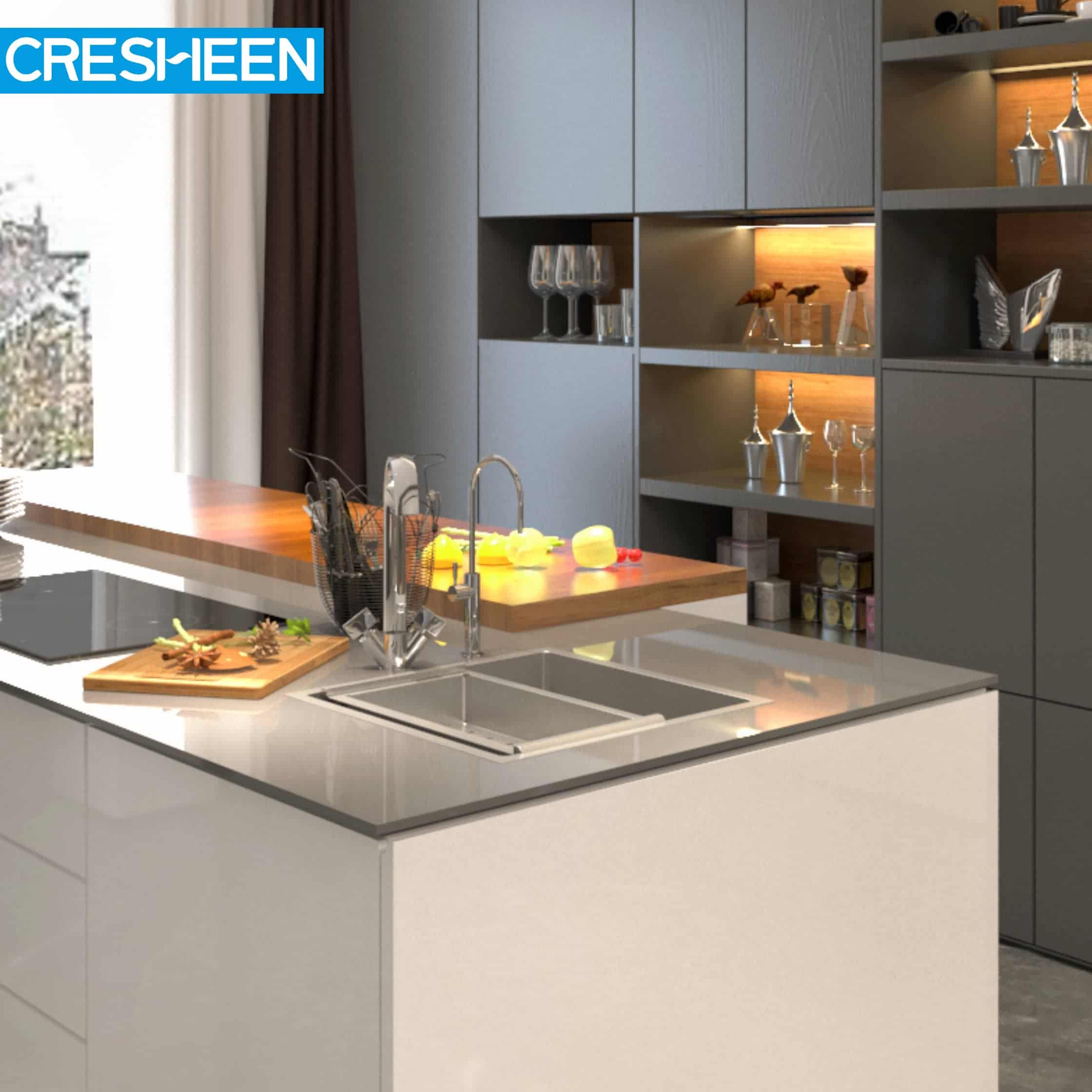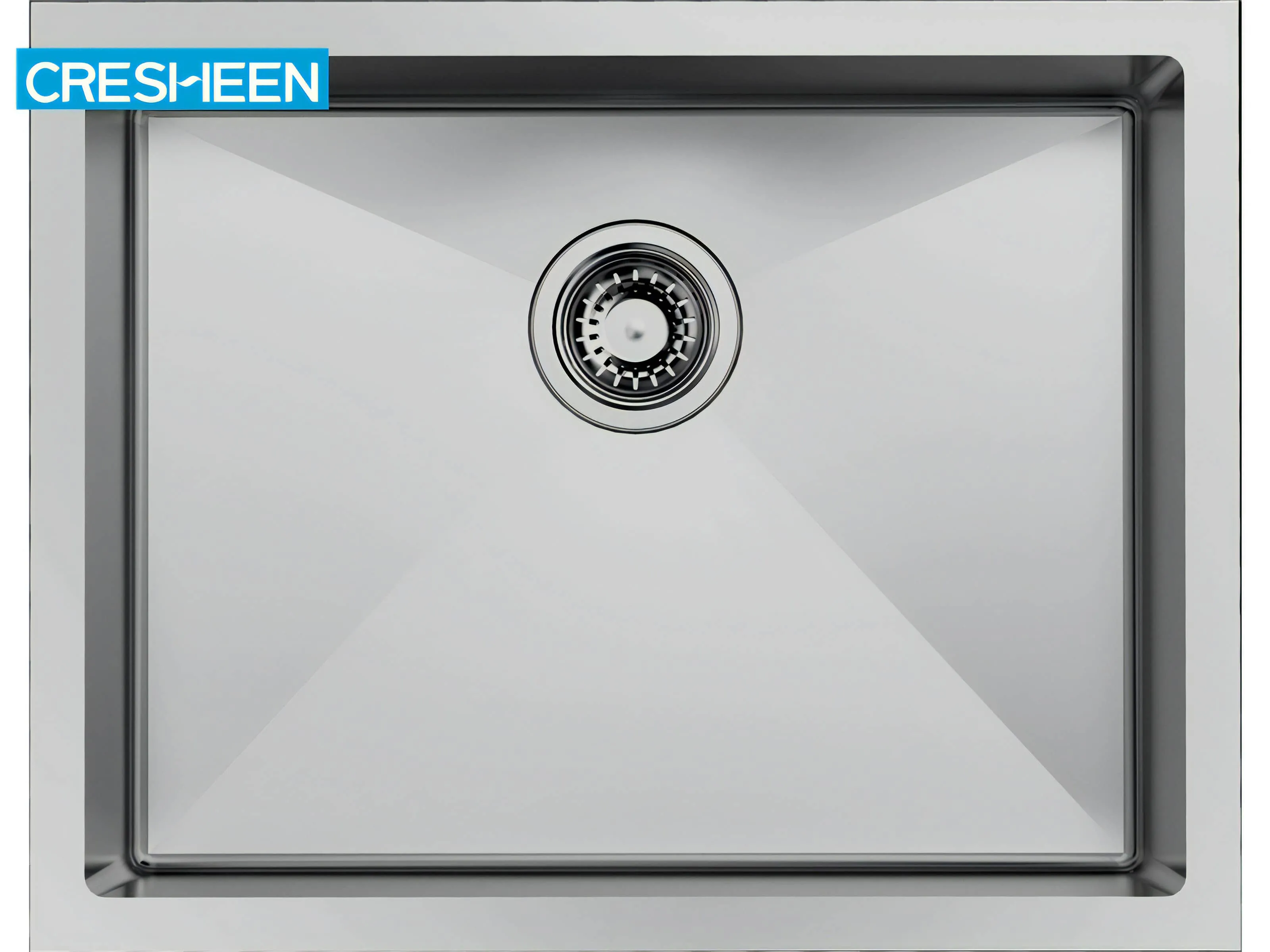Product recommendation
Stainless Steel Sink - The Differences Between 16 vs 18 Gauge
As discussed in Houzz Forum, selecting a 16 or 18 gauge stainless kitchen sink can be an overwhelming experience. The difference between the two gauges may seem insignificant, but it has a huge impact on the strength and performance of your kitchen sink. But before we get into that, let’s first understand what gauge is and how it affects a kitchen sink.
There are a lot of decisions to make when you’re remodeling your kitchen. Perhaps the first one that comes to mind is what type of sink you want to install. You might be wondering if 16 gauge or 18 gauge stainless steel sinks are better for your needs. This article will explain the benefits and downsides of both types of sinks and help you decide which one is right for your home. Which one do you think would be best for your new kitchen? Keep reading to find out more! Whether you have just begun planning your kitchen renovation or are in the process of working with an architect, it’s always good to know what different materials are best-suited for various parts of a room. This way, you can save time and money by avoiding materials that won’t work with other design aspects of a space before making any final decisions on the details.
16 Gauge Stainless Steel Sink
If you’re looking for a sink that will last a long time, 16 gauge stainless steel is a premium choice. This is the most common thickness for luxury kitchen sinks, so you’ll find a wide variety of them at many middle to high-end local home improvement and kitchen stores. If the kitchen sink is 16 gauge, it will likely last the lifetime of your home without needing to be replaced. It’s also easy to clean and will resist most stains.
One benefit of 16 gauge kitchen sinks is that they provide superior sound dampening. The thicker metal helps to absorb unwanted noise from running water, dishes and other activities in the kitchen. This makes them a great choice for open-concept kitchens or homes with young children.
18 Gauge Stainless Steel Sink
An 18 gauge stainless steel sink is another good option. While it’s not quite as thick as a 16 gauge sink, it still offers great durability and performance. It’s also less expensive than the 16 gauge variety, so if you are working with a tight budget, an 18 gauge kitchen sink might be the way to go.
Although 18 gauge stainless steel kitchen sinks might not be quite as thick as 16 gauge, they do offer impressive noise-canceling abilities. You won’t hear the loud clanging of dishes in the sink or running water like you would with a thinner model.
Which is Better?
It really depends on your budget and what type of performance you
18 Gauge Stainless Steel Sink
If you’re looking for a sink that will last a long time, 18 gauge stainless steel is a great choice. This thinner material may be a bit more cost-effective than a thicker sink, but it’s also very durable and will last for many years with regular use. It’s also easy to clean and will resist most stains. As we mentioned above, 18 gauge sinks are slightly thinner than 16 gauge ones. As such, they still provide a relatively firmer gripping surface that is less likely to bend or be deformed if you put a heavy object in the sink. If you’re caring for children or have elderly people who may need assistance with washing their hands, this can be a great feature.
An 18 gauge stainless steel sink might not be quite as thick as a 16 gauge sink, but it still offers great durability and performance. It’s also less expensive than the 16 gauge variety, so if you are working with a tight budget, an 18 gauge kitchen sink might be the way to go.
Although 18 gauge stainless steel kitchen sinks might not be quite as thick as 16 gauge, they do offer impressive noise-canceling abilities. You won’t hear the loud clanging of dishes in the sink or running water like you would with a thinner model.
Pros of a 16 Gauge Stainless Steel Sink
Slightly thicker and more durable than 18 gauge sinks
Better noise-dampening capabilities
Perfect choice for most of the luxury kitchen sinks
Stronger support
Pros of an 18 Gauge Stainless Steel Sink
Relatively thick and durable material
Easy to clean and resists most stains
May be more cost-effective than 16 gauge sinks
Cons of a 16 Gauge Stainless Steel Sink
More expensive than 18 gauge sinks
Harder to shape into the desired design
Cons of an 18 Gauge Stainless Steel Sink
Slightly thinner and less durable than 16 gauge sinks
May not provide the same level of noise dampening as a thicker sink.
What’s The Difference Between 16 Gauge and 18 Gauge?
The difference between 16 and 18 gauge stainless steel kitchen sinks is mainly in two areas: thickness and price. 16 gauge sinks are thicker and more expensive than 18 gauge sinks but will provide better overall performance due to their superior noise-dampening abilities. On the other hand, if you’re looking for a less expensive option with relatively good durability, an 18 gauge kitchen sink is a great choice.
In conclusion, deciding between 16 and 18 gauge stainless steel kitchen sinks really comes down to your budget and what type of performance you’re looking for. If sound dampening is important to you and you don’t mind spending a bit more money, then a 16 gauge kitchen sink is probably the better choice. However, if you’re looking for a more affordable option with good durability, an 18 gauge sink might be the way to go. No matter which type of kitchen sink you choose, make sure you work with a reliable kitchen sink supplier who can provide you with quality products and excellent customer service. This will ensure that you get a kitchen sink that lasts for many years and looks great in your home.
So, when it comes to 16 gauge vs 18 gauge stainless steel sinks – which is better? The answer depends on your needs and budget. But as long as you choose the right supplier, either one can be a great choice!
Cresheen is a leading supplier of kitchen sinks, offering 16 and 18 gauge stainless steel models in a variety of shapes and sizes. Contact us today to find out more about our kitchen sink offerings!
Conclusion
Making the decision between 16 gauge and 18 gauge stainless steel kitchen sinks doesn’t need to be difficult. Both types offer great performance and durability, so it comes down to your budget and what type of performance you’re looking for. If sound dampening is important to you and you don’t mind spending a bit more money, then a 16 gauge kitchen sink is probably the better choice. If you’re looking for a more affordable option with good durability, an 18 gauge sink might be the way to go. No matter which type of kitchen sink you choose, make sure you work with a reliable kitchen sink supplier who can provide you with quality products and excellent customer service. This will ensure that you get a kitchen sink that lasts for many years and looks great in your home. Cresheen is here to help – contact us today to find out more about our kitchen sink offerings!
Please visit product page for more information
-
Extra Big R10 Single Bowl 18 Gauge SS Kitchen Sink
Handmade sinks are personalized in terms of space and width. With its flexibility and humanising architecture, Gauge stainless steel sinks meet your goal of excellent pleasure in cooking. The standard thickness for handmade sinks is 1.2mm; however, we can create it 1.0-1.5mm to your specifications, and we ensure that is the true thickness according to our quote. Features: a handmade sink, made of food-grade sus304 stainless steel, is the newest kitchen fashion trend that is both visually beautiful and functional in design. small 10 degree radius small radius that is easy to clean
More





